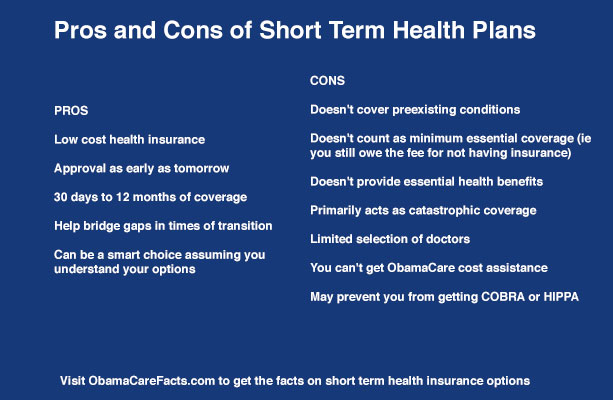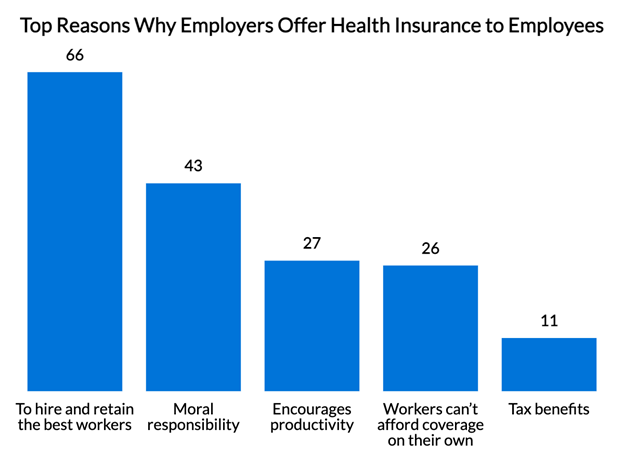The 6-Second Trick For Medicare Advantage Agent
The 6-Second Trick For Medicare Advantage Agent
Blog Article
The smart Trick of Medicare Advantage Agent That Nobody is Talking About
Table of ContentsIndicators on Medicare Advantage Agent You Need To KnowA Biased View of Medicare Advantage AgentMedicare Advantage Agent - TruthsWhat Does Medicare Advantage Agent Do?Things about Medicare Advantage AgentWhat Does Medicare Advantage Agent Do?What Does Medicare Advantage Agent Mean?

Major health problems can cost lot of times that. Healthcare protection aids you obtain the treatment you need and secures you and your household financially if you obtain unwell or injured. You can get it with: Your work or your partner's work, if the employer offers it. You should satisfy qualification requirements for federal government health treatment programs. For more details about government programs, browse through Benefits.gov. Find out more: Health insurance policy: 5 things you may not know Watch: Are you unexpectedly requiring medical insurance? You can include your family to a job health insurance. If you purchase from an insurance coverage firm or the industry, you can acquire
a plan that also covers your family members. They don't need to live at home, be enlisted in school, or be asserted as a reliant on your income tax return. You can keep married children on your plan, but you can not add their spouses or kids to it. If you have dependent grandchildren, you can keep them on your plan up until they turn 25. You can get at other times only if you lose your coverage or have a life modification. Life modifications consist of things like marrying or
divorced, having a baby, or adopting a child. You can register for a job health insurance when you're initial employed or have a significant life change. They can not refute you protection or cost you extra as a result of a pre-existing condition or disability. The price depends on your scenarios. You'll need to pay costs and component of the expense of your care. A costs is a month-to-month fee you pay to have protection. To choose your premium, insurer will certainly consider: Your age. Whether you smoke or use tobacco. Whether the coverage is for one person or a household. They might not consider your sex or health aspects, including your case history or whether you have an impairment. Costs for private plans are locked in for one year. Fees typically rise when the plan is restored to show your age and higher wellness treatment costs. All health insurance plan require you to.
pay some of the price of your healthcare. This is called cost-sharing. In addition to premiums, you typically have to fulfill an insurance deductible and pay copayments and coinsurance. A is the amount you need to pay before your plan will pay. If your deductible is$ 1,000, your plan won't pay anything until you've paid $1,000 yourself.
You'll also have a copayment if you most likely to the emergency situation room or see an expert. The quantities vary by strategy. is a quantity you spend for a protected solution after you have actually satisfied your deductible. It's usually a portion of the cost of the solution. For instance, your health insurance may pay 80 % of the expense of a surgical treatment or healthcare facility keep.
The percent you pay in coinsurance varies by strategy. Federal legislation sets limits on the amount you pay out of pocket in a plan year.
Facts About Medicare Advantage Agent Revealed

Exclusive supplier (EPO) strategies. All four kinds are taken care of care strategies. Taken care of care plans limit your option of medical professionals or encourage you to utilize medical professionals in their networks.
The plans differ in the degree to which you can use doctors outside the network and whether you have to have a medical professional to oversee your care. You need to use service providers in the HMO's network. If you do not, you might have to pay the complete expense of your care yourself. There are exceptions for emergency situations and if you need treatment that isn't readily available in the network. Medicare Advantage Agent.
You'll additionally have a copayment if you go to the emergency situation room or see a professional. The quantities differ by plan. is a quantity you pay for a covered solution after you've met your insurance deductible. It's typically a percent of the expense of the service. Your health and wellness plan could pay 80 % of the expense of a surgery or hospital stay.
Indicators on Medicare Advantage Agent You Should Know
The portion you pay in coinsurance varies by strategy. You normally don't have to pay coinsurance in an HMO. Federal regulation sets restrictions on the quantity you pay of pocket in a plan year. Some strategies have reduced out-of-pocket limits. After you get to the restriction, you don't have to pay copayments or coinsurance for the remainder of this hyperlink the plan year.
A strategy year is the 12-month period from the day your coverage began - Medicare Advantage Agent. There are four types of significant medical health and wellness plans in Texas.
Special service provider (EPO) plans. All four types are managed care strategies. Managed treatment strategies limit your choice of physicians or encourage you to use medical professionals in their networks.
The plans vary in the degree to which you can make use of physicians outside the network and whether you need to have a medical professional to oversee your care. If you do not, you may have to pay the full price of your care on your own.
Indicators on Medicare Advantage Agent You Should Know
You'll also have a copayment if you go to the emergency clinic or see a professional. The amounts vary by strategy. is an amount you spend for a protected service after you've met your deductible. It's usually a portion of the price of the solution. For instance, your health strategy may pay 80 % of the expense of a surgery or medical facility stay.

The percentage you pay in coinsurance differs by plan. You generally don't need to pay coinsurance in an HMO. Federal law sets restrictions on the amount you pay of pocket in a strategy year. Some strategies have lower out-of-pocket restrictions. After you reach the limitation, you don't have to pay copayments or coinsurance for the remainder of the strategy year.
A plan year is the 12-month duration from the date your protection started. As an example, if your insurance coverage began on September 1, your plan year lasts up until August 31. Learn more: Exactly how to save cash at the physician Care options and prices There are 4 types of significant medical health strategies in Texas.
The four types are: HMO strategies. Special service provider (EPO) strategies. Preferred copyright (PPO) plans. Point-of-service plans. All 4 kinds are handled treatment strategies. This indicates they contract with doctors and other healthcare providers to treat their members at discounted rates. These suppliers make up a strategy's network. Managed treatment strategies limit your option of medical professionals or motivate you to use medical professionals in their networks.
The 3-Minute Rule for Medicare Advantage Agent
The strategies differ in the level to which you can utilize physicians outside the network and whether you must have a doctor to manage your treatment. You need to use companies in the HMO's network. If you don't, you may have to pay the full expense of your care yourself. There are exceptions for emergency situations and if you need care that read more isn't readily available in the network.
The quantities differ by strategy. Your wellness strategy might pay 80 % of the cost of a surgery or hospital keep.
The percentage you pay in coinsurance varies by strategy. You usually don't need to pay coinsurance in an HMO. Federal legislation sets restrictions on the quantity you pay out of pocket in a strategy year. Some plans have reduced out-of-pocket restrictions. After you reach the restriction, you do not need to pay copayments or coinsurance for the remainder of the plan year.
A plan year is the 12-month period from the date your coverage started. There are 4 types of significant clinical health and wellness strategies in Texas.
Medicare Advantage Agent Things To Know Before You Get This
The four you can try this out types are: HMO strategies. Unique company (EPO) strategies. Preferred service provider (PPO) plans. Point-of-service plans. All four kinds are taken care of care strategies. This indicates they agreement with physicians and other healthcare suppliers to treat their members at reduced prices. These service providers comprise a plan's network. Handled care plans limit your option of medical professionals or encourage you to make use of doctors in their networks.
The plans vary in the degree to which you can use medical professionals outside the network and whether you need to have a medical professional to supervise your treatment. You have to use suppliers in the HMO's network. If you don't, you could need to pay the full price of your care on your own. There are exceptions for emergencies and if you require care that isn't available in the network.
Report this page